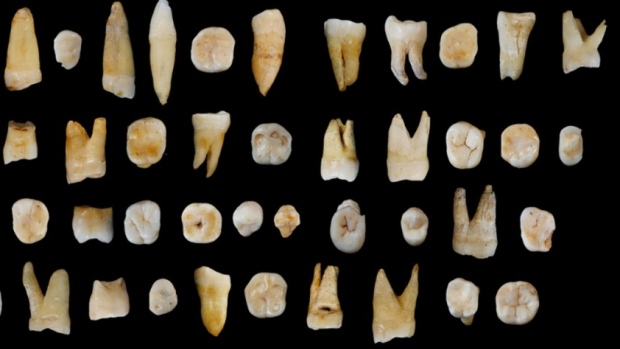-
Tips for becoming a good boxer - November 6, 2020
-
7 expert tips for making your hens night a memorable one - November 6, 2020
-
5 reasons to host your Christmas party on a cruise boat - November 6, 2020
-
What to do when you’re charged with a crime - November 6, 2020
-
Should you get one or multiple dogs? Here’s all you need to know - November 3, 2020
-
A Guide: How to Build Your Very Own Magic Mirror - February 14, 2019
-
Our Top Inspirational Baseball Stars - November 24, 2018
-
Five Tech Tools That Will Help You Turn Your Blog into a Business - November 24, 2018
-
How to Indulge on Vacation without Expanding Your Waist - November 9, 2018
-
5 Strategies for Businesses to Appeal to Today’s Increasingly Mobile-Crazed Customers - November 9, 2018
Modern humans out of Africa sooner than thought
Recent intensive excavations in the Fuyan Cave – a limestone cave located in Tangbei Village, Daoxian County, Hunan Province, southern China – yielded a collection of human teeth and fossils from various extinct and living mammals.
Advertisement
“It may be that that Europe was too small for two intelligent and behaviorally complex species that were seeking the same type of resources”, study co-lead author María Martinón-Torres at University College London told Live Science. Older traces of modern humans previously discovered outside Africa, such as the roughly 100,000-year-old remains from the Skhul and Qafzeh caves in Israel, were discarded by scientists as evidence of unsuccessful efforts at wider migration.
Up until now, the earliest proof of Homo sapiens east of the Arabian Peninsula came from the Tianyuan Cave near Beijing, and dated from no more than 40,000 years ago. The researchers suspect that the Neanderthals’ presence might have even deterred our species’ migration into Europe, since it took Homo sapiens so long to get there.
The finding puts the migration of our modern human species northward earlier by at least 20,000 years and may require a re-thinking of the accepted version of the “Out of Africa” story of the spread of modern humans, they suggest.
“They are indeed the earliest Homo sapiens with fully modern morphologies outside of Africa”, lead author Wu Liu of the Chinese Academy of Sciences told Discovery News.
Human evolution expert Associate Professor Darren Curnoe from UNSW Australia said it was unlikely these earlier H. sapiens were genetically related to us.
Another member of the study said the group’s finding of human teeth has opened up a number of questions that need to be answered.
A team of researchers on Wednesday announced the discovery of ancient human teeth in a Chinese cave that is believed to be around 80,000 years old.
Still, Neanderthals might not be the main reason for the relatively late entry of modern humans into Europe, said archaeologist Robin Dennell at the University of Exeter in England, who did not take part in this research. “These populations, did they really evolve also for a while outside Africa?”
The cache of teeth almost went unnoticed.
“By thinking about the cave environment, we realized that human fossils might be found there”, he said.
Advertisement
This means that everything below those stalagmites must be older than 80,000 years old; the human teeth could be as old as 125,000 years, according to the researchers.




























